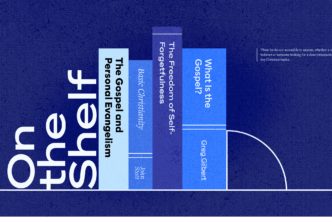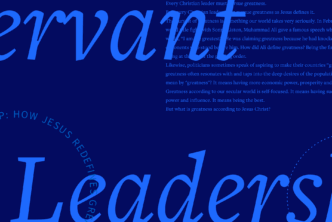“Every theology is contextual.” So opens the preface in each volume of the Asia Bible Commentary. The commentary series stands on the premise that our “understanding of the Bible is influenced by our historical and social locations.” The momentous task undertaken by the Asia Bible Commentary (ABC) is to give voice to Asian evangelical scholars in whose homelands Christianity is spreading like untempered fire but sound exegesis of the biblical text historically is lacking, where the prosperity gospel and native religion threaten pure doctrine. The ABC bolsters the preaching of the Word in a global context.
I put a number of questions to Rico Villanueva (former General Editor) and Andrew Spurgeon (current General Editor) in a brief interview recounted below. We at Logos are very excited to have a number of volumes in the ABC series now available for your digital library. Stay tuned for more interviews with the authors and editors of Langham Publishing in the coming weeks.
What makes the Asia Bible Commentary (ABC) distinct in relation to other commentaries on the market, and which readers are the volumes intended for?
Rico: I think its the combination of the series being both “pastoral” and “contextual.” By the former, we mean the series is unashamedly Christian and aimed towards strengthening the body of Christ in Asia and beyond. I should note that unlike in the west, churches are growing in Asia and Christians need guidance not only on what the text meant but what the text means for them as disciples, people of God in the here and now. Such word or message has to be contextual. This is the emphasis of the latter point. We cannot deny the fact that traditional Asian cultures differ from most western cultures. One example is with regards to the Asian bent towards the community. Incidentally, this is closer to the culture of the Bible. So reading a commentary like Asia Bible Commentary series makes it easier to see the connection. See for example the interpretation of the book of Ruth from the Indian context.
Andrew: Asian Bible Commentary is written by scholars who have spent their lifetime in Asia either by birth or commitment to serve the churches in Asia. As such, these authors bring life experiences and contemporize the gospel message to the Asian readership. ABC’s primary audiences are pastors, lay leaders, and Bible college students in Asia.

What do you look for in the authors you select to write for the series?
Rico: The biblical requirement is a given. We do not accept a writer who does not have a PhD in biblical studies (OT/NT) depending on the book they are writing. But in addition to the intellectual requirement, we look for a pastoral heart. We are looking for biblical scholars who are able to connect with their people and draw from the insights of the Bible to help their people in their walk with God and engagement with society.
Andrew: We look for scholars who have a command of the Bible and Hebrew and Greek. And, we search for people with pastoral hearts, who can gently and contextually instruct the readers to understand and obey God’s word.
What does the Asian context offer to biblical interpretation that has perhaps been overlooked or minimized, and how does the ABC address that oversight?
Rico: What does the Asian context offer to biblical interpretation that has perhaps been overlooked or minimized, and how does the ABC address that oversight? The issue of suffering is a big one. Many countries in Asia have been former colonies. It’s only now that the world as a whole has been exposed to suffering like covid. But many countries in Asia have seen sufferings. Philippines from where I come from had been under the Spaniards for more than 300 years. There is something about being down there, under other colonizers which make the Bible so much empowering, for it is written by people who also had been under foreign powers. I think one problem with many of biblical comentaries and books on the Bible is that it is written mostly by people who have not experience what it means to be colonized. So they cannot see some of the things that we see. For example, I see lament differently from my western counterparts precisely because of my different context. I ask different questions. I see different insights from the text. And these I hope to bring out in my own interpretation of the biblical text.
Andrew: Several pictures presented in the Bible are still alive in the Asian cultures. For example, poor farmers still use ox to plow their fields and tread the grains. As such, the command, “Do not muzzle the ox that treads the grain” (1 Cor 9:9) is a present-day reality for Asian readers. In the ABC, the writers try to bring out such cultural nuances that reflect the biblical culture and context so that what the readers learn is practical and applicational.

Federico, you mention in your preface to Lamentations how Typhoon Yolanda affected your interpretation of the book. Can you elaborate on how current events inform our theology, and reading of Scripture?
Rico: Biblical studies has not been as exciting as it is now, when I see right before my very eyes the relevance of the biblical text. I was able to appreciate the book of Lamentations because of our own experience in Typhoon Yolanda. And all the more today with our current experience not only of covid but of a government which is oppressive to its own people. Unfortunately, the only verses many Christians know from this book of Lamentations is Lamentations 3:24-25 – “The steadfast love of the Lord …” as if that is the only and main message of the book. But Lamentations is much more than the declaration of God’s faithfulness. That is certainly there, but so is the suffering, the hunger, the questions, and the tragic sense of life as a whole as reflected in the ending of Lamentations.
Andrew, as a New Testament Consulting Editor for the ABC, and co-author of the James commentary, what particular challenges have you experienced in moving the NT set towards completion?
Andrew: Most of our writers studied in the west. As such, they often write for the western audience. Getting them to rethink in an Asian context has always been the challenge. That was the same challenge my co-author and I faced – how do we draw the benefits of academia and make the lessons practical and relevant for the Asian audience. I and many Asian writers are still growing in this area.

How has the ABC been received in Asia, compared to the rest of the world?
Rico: I think it is slowly picking up. Many still prefer western commentaries. I think resources-wise we cannot compete with the west. But I hope our people will realize the value of our own culture and context which we bring into the text as we interpret it.
Andrew: ABC has a good reputation in Asia because Asia Theological Association (ATA) publishes the volumes in collaboration with Langham Partners. ATA accredits over 350 Bible colleges and seminaries. They are all familiar with the ABC volumes and use them regularly. ABC is getting the attention of the western world only slowly.
Finally, what volumes should we expect to see in the near future?
Both: This year, we hope to publish the commentaries on 1 & 2 Kings and Joel-Nahum-Malachi. Psalms 73–150 and Proverbs will be published in early 2022.
Select volumes from the Asia Bible Commentary series are presently available for your Logos digital library as individual editions, or in the following series:
5-Volume Series: Judges, Psalms 1–72, Lamentations, Matthew, 1-3 John
10-Volume Update: Leviticus, Numbers, 1 Samuel, Ezra & Nehemiah,







